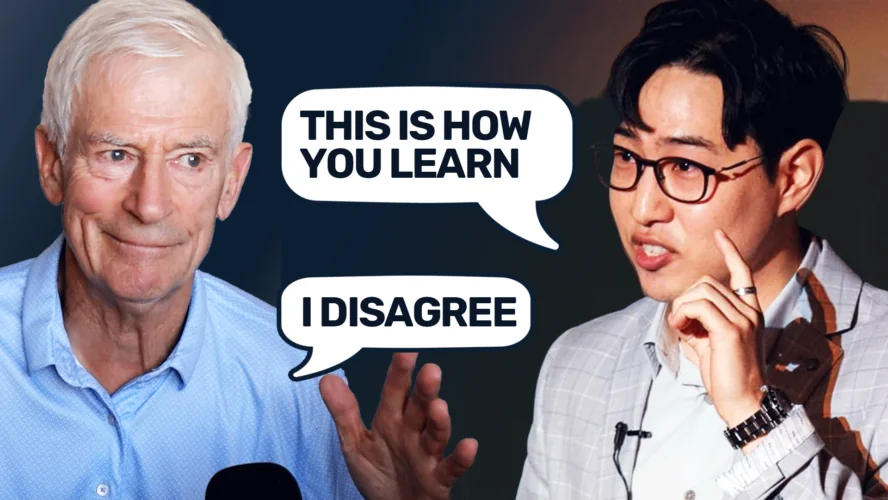Justin Sung offers interesting advice about learning in general on his YouTube channel, particularly regarding the importance of relevance, curiosity and repeated retrieval in learning activity. However, his recent video on language learning, aimed at Japanese English learners, sparked some thoughts I’d like to share.
Justin Sung’s Approach to Language Learning
In his video titled Using Interleaving” for Language Learning | TEDx Interview, Justin Sung distinguishes three types of knowledge crucial for learning: declarative (factual knowledge), procedural (know-how), and conditional (knowing when to apply knowledge). He wants to apply these concepts to language learning, but I believe this approach ignores the unique nature of language acquisition.
Declarative vs. Conditional Knowledge in Language Learning
This distinction between different types of knowledge may apply to certain kinds of university courses however in learning languages, these distinctions don’t apply. We need to learn words, we need to get used to how to interpret and use the language and we need to acquire the sense of when to use which words and structures. In language learning, these distinctions blur. Our abilities to understand and use the language comes through immersion and practice.
Justin Sung’s Advice on Vocabulary Learning
Sung suggests learning different forms of similar expressions when acquiring new words. He seems to suggest that this will prepare a learner for a variety of language situations. He suggests noting down words we think we may need and looking them up. He even suggests that noting down different vocabulary items related to subjects like economics will enable us to have conversations on these subjects. But he doesn’t say how to acquire these words and expressions. Simply tallying up words you think you will need isn’t effective, as it implies we can learn words effectively out of their natural context.

The Need for a Comprehensive Learning Strategy
Effective language learning requires more than simply jotting down words and practicing them in isolation. We need massive exposure to the language, the repetitive exposure to words and phrases in different and interesting contexts. This means a lot of listening and reading and eventually speaking without worrying about our mistakes. We need a solid and broad level of comprehension in order to engage in complex discussions about subjects like economics or politics.
LingQ as a Learning Tool
For those interested in specific topics like economics, using tools like LingQ can be beneficial. Learners can find content of interest online, read and listen to it looking up the meaning of words using online dictionaries as they go. They can even import texts, TV programs and podcasts into LingQ, and AI will generate the texts or audio needed to learn from this content.

The missing piece in Sung’s advice is the need for compelling input, that relevance factor, so important for learning, as he himself often says. This approach ensures continuous engagement and facilitates learning through content that resonates with the learner’s interests.
I believe Justin Sung’s language learning advice lacks depth and practicality. It’s important to critically assess any language learning advice, including mine, and tailor our language learning methods to what works for us. As a final note, I recommend checking out my videos on comprehensible and compelling input for more insights into effective language learning.


